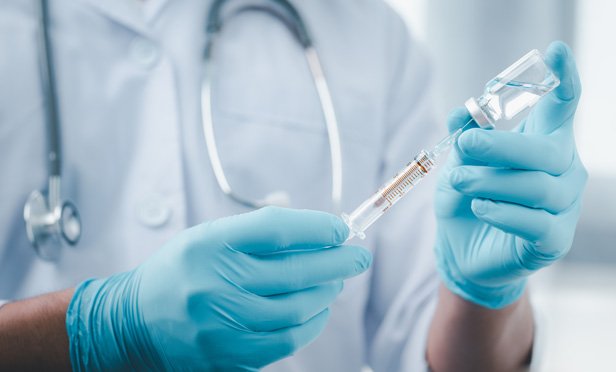
The Biden Administration announced in September that the federal government has run out of funding to keep providing free COVID-19 vaccines and that, absent further Congressional action, it is preparing to transition vaccines to the commercial market. That move, according to a new Kaiser Family Foundation (KFF) analysis, could increase spending on COVID-19 vaccines by billions of dollars per year.
"Manufacturers will be negotiating prices directly with insurers and purchasers, not just the federal government, and prices are expected to rise," according to the Dec. 7 report, titled "How Much Could COVID-19 Vaccines Cost the U.S. After Commercialization?"
Recommended For You
While the analysts note that most people will still have free access to vaccines, "the cost of purchasing vaccines for the population is likely to rise on a per dose basis, though the extent to which it affects total health spending is dependent on vaccine uptake and any negotiated discounts, among other factors."
To date, the federal government has spent more than $30 billion on COVID-19 vaccines to encourage their development, guarantee a market, and ensure the public can access them for free.
Vaccine makers Pfizer and Moderna have announced that the anticipated commercial price per dose of their vaccines would likely be between $82 and $130 per dose – roughly three to four times what the federal government has paid, according to the KFF analysis. If payers end up paying those prices for one dose per adult, analysts estimate the total cost of purchasing booster shots commercially would run between $6.2 billion and $29.7 billion a year, depending on price and how many people receive the vaccine or booster.
KFF officials say it's difficult at this point to declare the specific price of future doses. "They could be higher than those implied by companies so far if new formulations are developed, or could come down if discounts are negotiated," according to the report.
They warn, however, that insurers and public programs won't have much leverage, because they are required to cover all COVID vaccines recommended by the Advisory Committee on Immunization Practices with no patient out-of-pocket costs.
"Without advanced purchases or guarantees by the federal government, it's also possible that future supply may not always match demand, which would have unpredictable consequences for the price and availability of vaccines in the U.S.," the report concludes.
© Touchpoint Markets, All Rights Reserved. Request academic re-use from www.copyright.com. All other uses, submit a request to [email protected]. For more inforrmation visit Asset & Logo Licensing.






